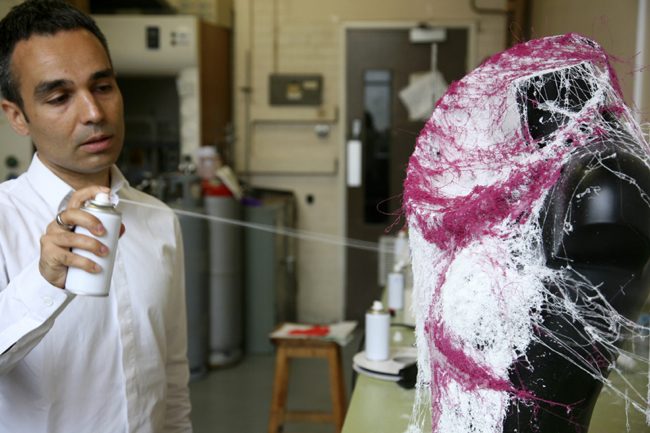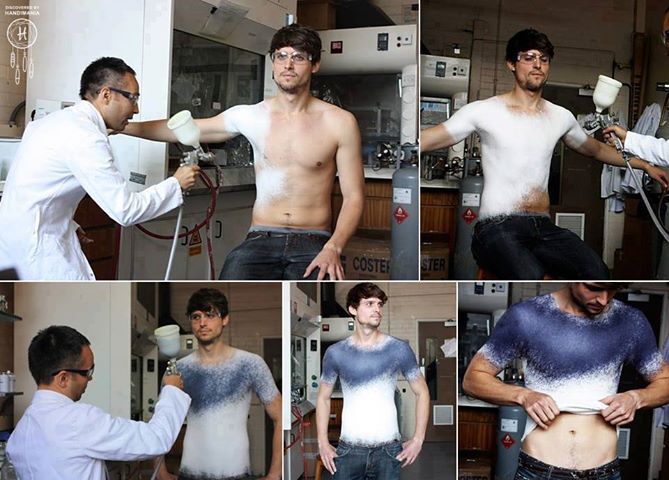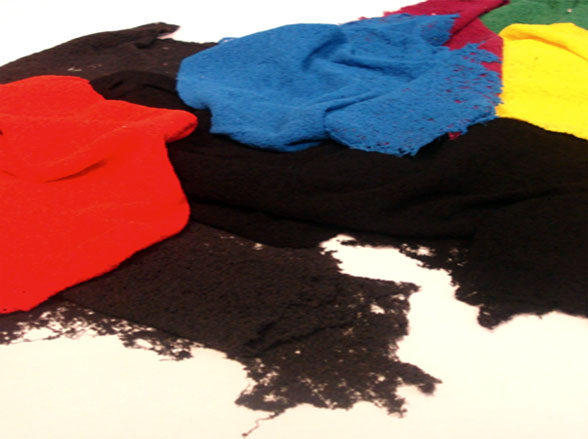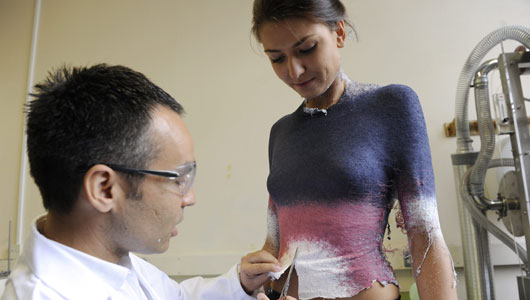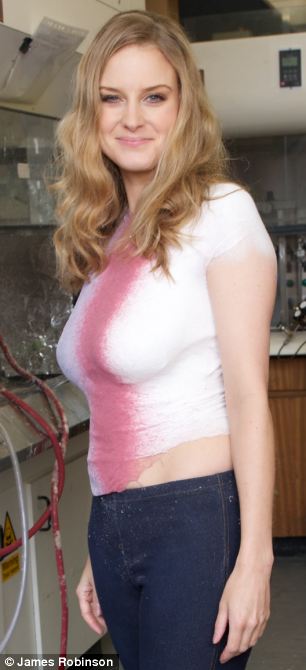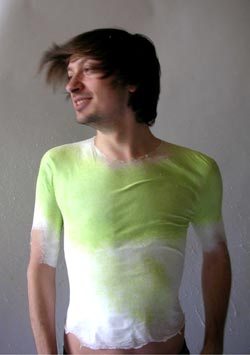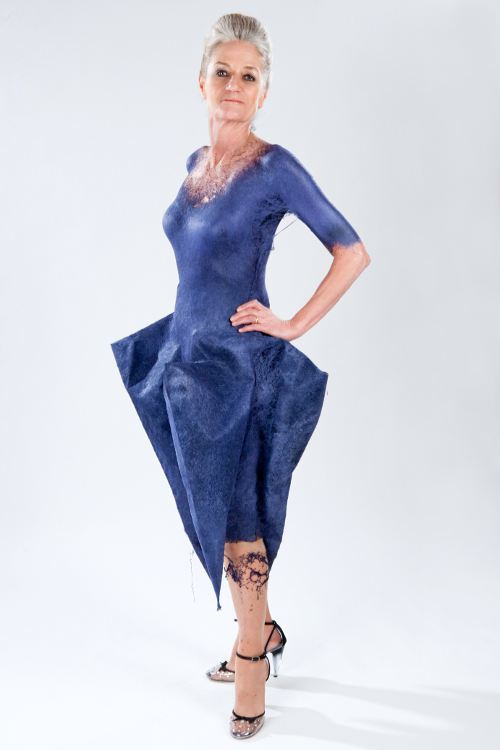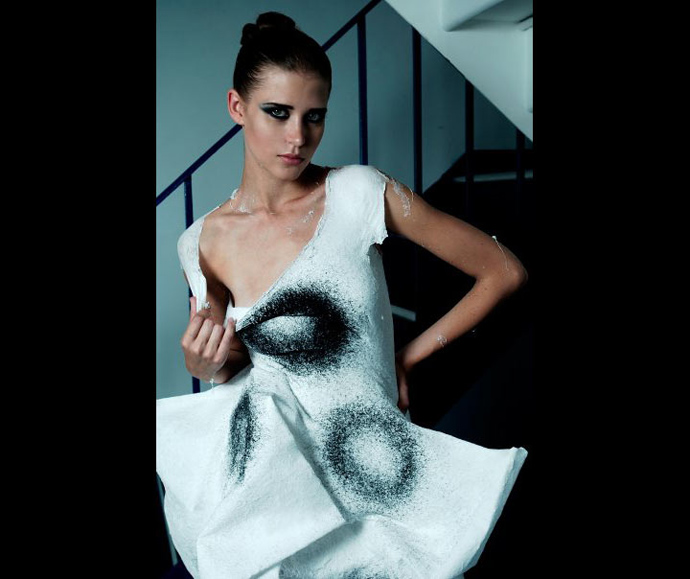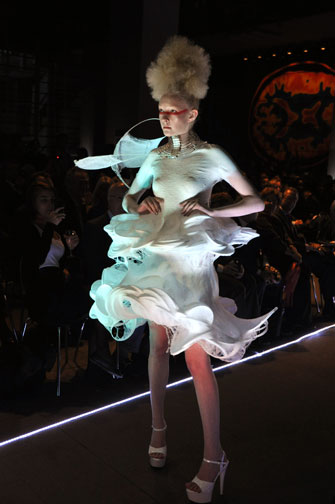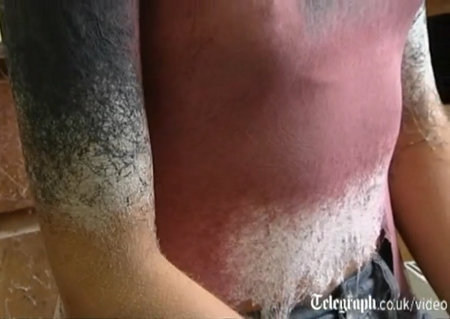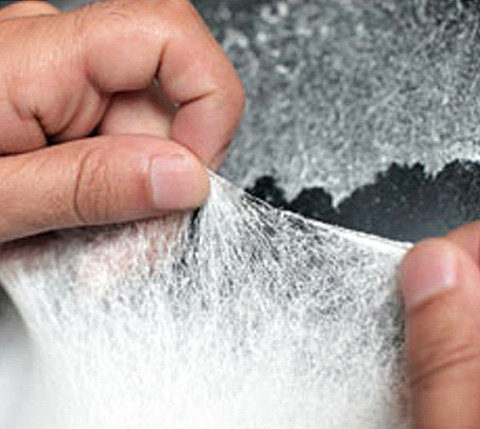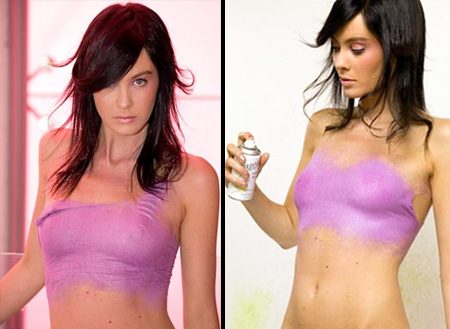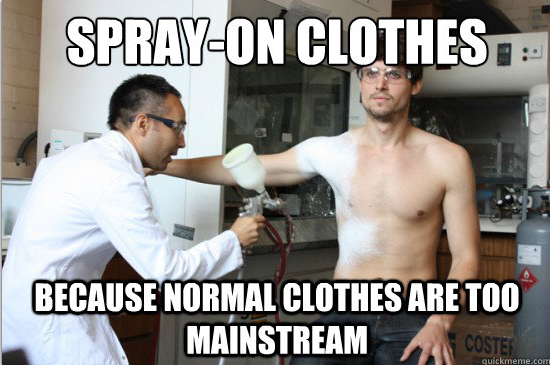Would You Wear These Spray-On Clothes?
The Department of Chemical Engineering of the Imperial College London have created clothes-in-a-can, or more sophisticately know as Fabrican, spray-on fabric. From what we've seen, the spray-on clothes seems pretty impressive and beautiful, not to mention sustainable. Spray-on fabric, clothes of the future? Would you strip down and spray on some clothes?
London-based Fabrican creates spray-on fabric
Thanks to a liquid mixture made of cotton fibres, we could soon be spraying ourselves into everything from T-shirts, dresses and trousers to swimwear and hats.
dailymail.co.ukA Spanish fashion designer has developed the world's first spray-on clothing that can be worn, washed and worn again.
Manel Torres joined forces with scientists at Imperial College London to invent the spray, which forms a seamless fabric on contact with the body
In 2000 Fabrican patented an instant, sprayable, non-woven fabric. From its base at the Department of Chemical Engineering, Imperial College London, Fabrican technology has captured the imagination of designers, industry and the public around the world.
This technology, called Fabrican, is based on 15 years of research by fashion designer Manel Torres and particle engineer Paul Luckham.
Sustainable sprayed-on clothes can be washed and dissolved to make something new
When you get bored with your creation it can be dissolved and the material used again to make something new or repair old designs.
dailymail.co.ukSustainable sprayed-on clothes can be washed and dissolved to make something new
Image via fbcdn.netThe material can be built up in layers to create a garment of your desired thickness and can also be washed and worn again like conventional fabrics.
newscientist.comIts properties can be tailored to meet the needs of each user.
Spray-on fashion hits the runway
The science behind it
Dr Torres teamed up with Paul Luckham, Professor of Particle Technology at Imperial College London, to create Fabrican, which consists of cotton fibres, polymers (the plastics which hold them together) and solvents which keep it in liquid form.
dailymail.co.ukThe spray consists of short fibres that are mixed into a solvent, allowing it to be sprayed from a can or high-pressure spray gun. The fibres are mixed with polymers that bind them together to form a fabric. The texture of the fabric can be varied by using wool, linen or acrylic fibres.
The fabric is formed by the cross-linking of fibres, which adhere to one another,
to create an instant non-woven fabric that can be easily sprayed on to any surface.
The fabric, which dries when it meets the skin, is very cold when it is sprayed on, a limitation that may frustrate hopes for spray-on trousers and other garments.
Not just for clothes
In addition to creating instant fashion, the technology could have a range of other uses – spray-on bandages, for instance. "It's a sterilised material coming from an aerosol can, and you can add drugs to it to help a wound heal faster," says Torres.
newscientist.comThe technology has been developed for use in household, industrial, personal and healthcare, decorative and fashion applications using aerosol cans or spray-guns, and will soon be found in products available everywhere.
the spray-on fabric may be produced and kept in a sterilised can, which could be perfect for providing spray-on bandages without applying any pressure for soothing burnt skin, or delivering medicines directly to a wound.

